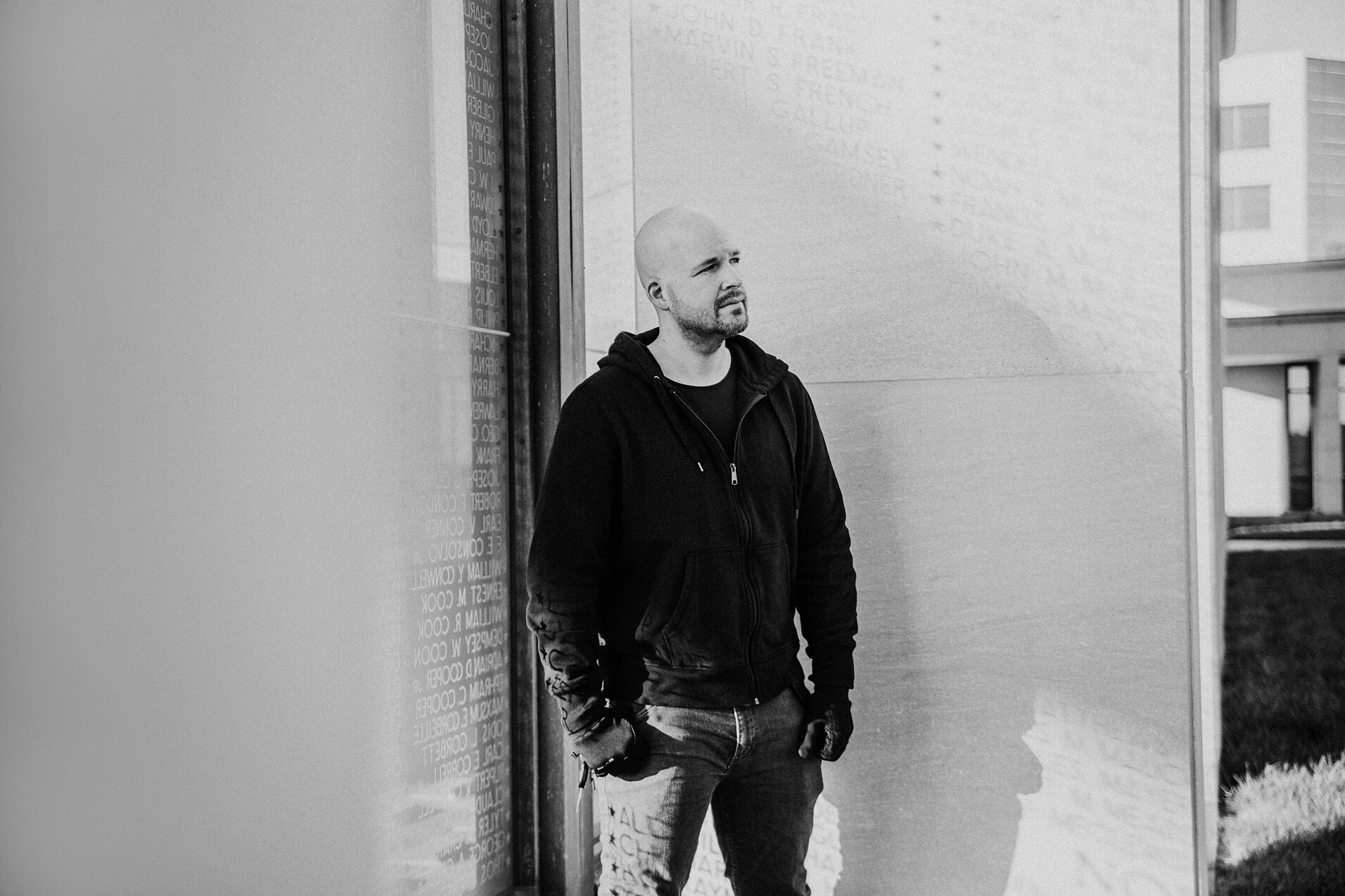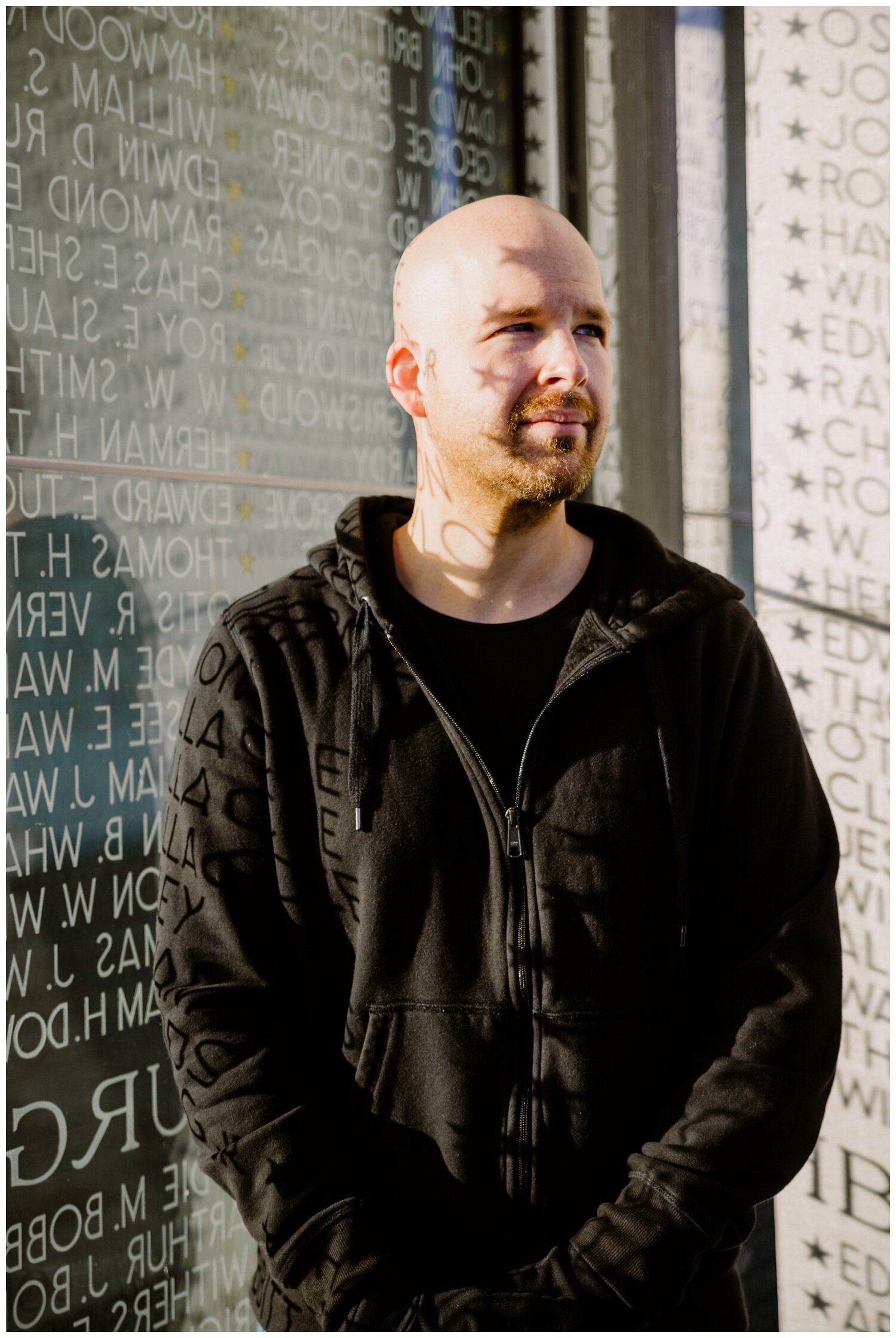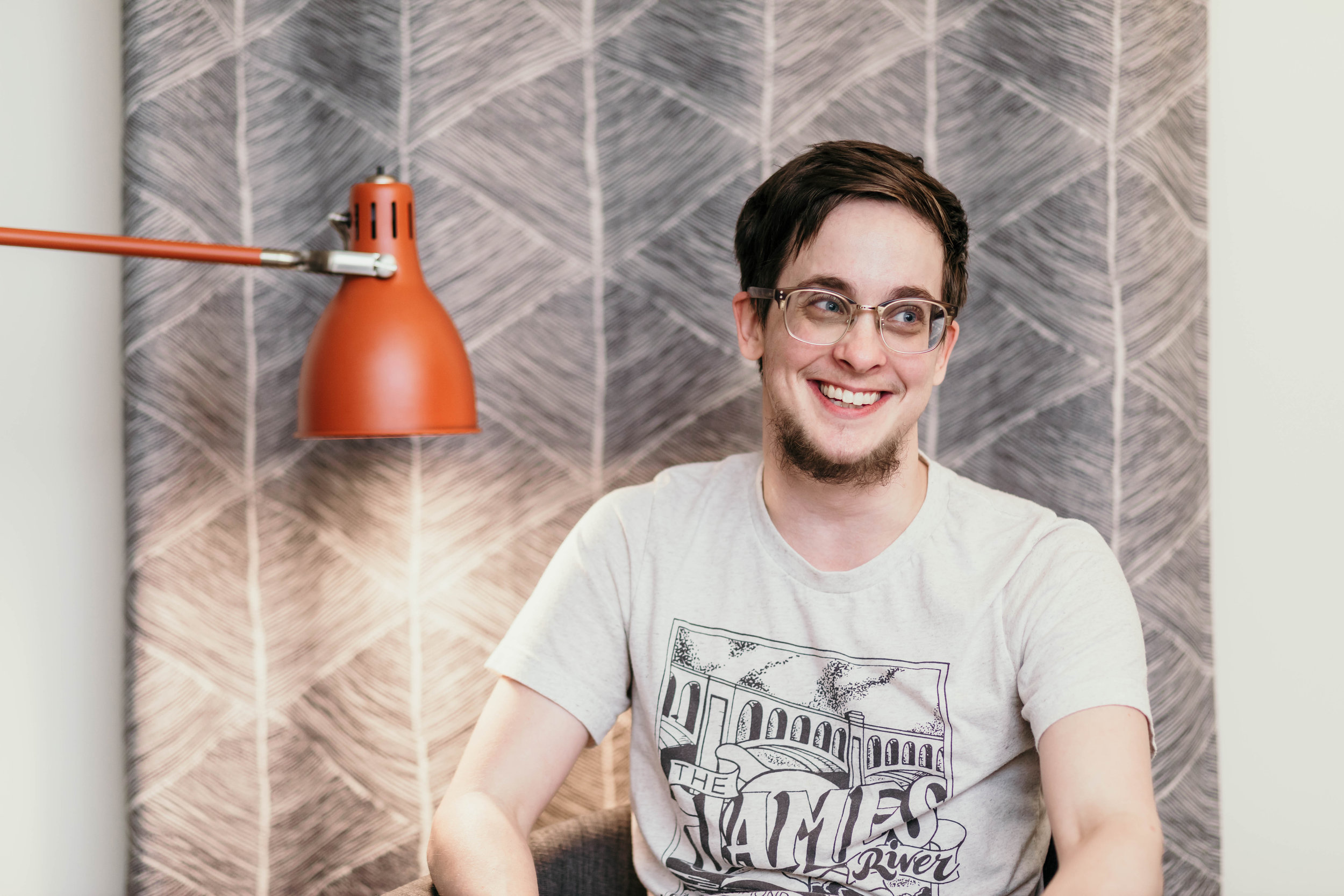Benjamin Barnard

A lot of things unfortunately took a backseat this year and Hello RVA was just one of the many things I was forced to de-prioritize as I tip-toed through all of the changes and obstacles 2020 has introduced. Though, over the last couple of months, this project has been sitting heavily on my mind. While we have collectively navigated through a global pandemic, major social unrest, and a divisive election (among so many other things) this platform has remained utterly silent. There are plenty of things I could easily blame for that: moving further away from Richmond, quarantining in the middle of nowhere, major life changes and a brain that simply can’t keep up some days. But as my father used to say, “any excuse is a good excuse.” So, I’m starting fresh (again), beginning with a wonderful long-time friend who is both a Navy veteran, and RN - an essential worker on the front-lines of the pandemic.
Meet Benjamin Barnard
registered nurse and Hospital Corpsman. 2nd class petty officer United States Naval Reserve.
First, what brought you to RVA?
Having moved away most of my high school years, I always thought of Richmond as the closest thing to what felt like home. Moving back to the area after leaving active duty to transition to the reserve, it started to feel more and more like the home I wanted. Two hours from the beach, two hours from the mountains, good food, a good community and a vibrant art scene. Not many places will check all of those boxes.
what are some things you enjoy doing in your spare time?
So much of my life lately has been either work, school or the navy. Any little way I can mentally escape from work when I’m off the clock keeps me centered. I have enjoyed sending postcards out lately, I’ve found that it helps me through writer’s block and keeps me in contact with friends and family. In the warmer months I enjoy gardening in my small vineyard/garden and paddling around in my kayak. I’m a longtime listener of audiobooks and podcasts, which have made many of the mundane tasks of making my cluttered old family home feel like my own a more productive and enjoyable experience.
Where did your journey into nursing begin and what made you persue this line of work?
I never initially wanted to be in healthcare… Especially a nurse. My mother was a nurse. She worked long term care, convalescent centers. She did well enough working there to care for us but I remember visiting her work a few times as a young child and thinking how sad and scary of a place it could be. For many years I didn’t have the broad context of just how expansive the nursing role and profession is. I think most people probably only think of the superficial perceptions of what nursing is.
I chose to join the navy out of high school. I wanted to do something and get out of where I was while I figured out my place in the world. A very extreme version of going on a walk to clear your head. In the navy as a hospital corpsman I found such a thirst for knowledge and experience in the medical community. All of the hospitals I found myself in were teaching hospitals and for the most part, there was always someone willing to teach you or show you something new. Blood, guts and glory, I found my tribe even if I didn’t fully realize it initially. A four-year enlistment became five, became six, became seven. Whether it was a new school like surgical technology, an overseas duty station or the opportunity to deploy in a shock trauma surgical company, I kept finding new reasons I wanted to stay and try something else. Around my seventh year while in Afghanistan assisting in shock trauma combat surgeries, I truly accepted that this was the work I wanted to continue to do.
We deployed without any true operating room nurses, so we had to teach critical care nurses a lot of the aspects of OR nursing and I started to think that I was capable of doing more. Coming off active duty, I came back to Richmond for the first time in almost a decade, transitioned to the Naval Reserve and started on my path to get my associates of applied science in nursing from J Sargeant Reynolds Community College.
What are some valuable lessons you have learned throughout your career as a nurse?
Remembering that it might just be another Monday for myself, but it could be one of the scariest, hardest, most painful or embarrassing days of someone’s life. To try and preserve everyone’s dignity in any way I can, because those little things matter and they add up. This could be the one of the worst days of someone’s life and I might be verbally attacked because I’m an easy target, but to try not to take it personally and have patience. Get to know the patients outside of their health history. Knowing more about their lives outside the hospital helps establish a rapport and I can quickly glean a lot of valuable information related to their care/discharge plan from simple questions like, “where are you from and what do you do?”
Is there an experience or story that has stuck with you or changed your perspective in some way?
No single experience comes to mind but an overall sense of community. For the most part, I work with people from the metro area and often I find I am only a degree or two of separation away from someone that I know. My patients are my neighbors, friends and coworkers of friends and relatives. From important people in high positions, to people living in destitution, they all deserve to feel safe and they all deserve to receive the same high standard of care.
What has your experience been like throughout the COVID pandemic?
My experiences in active duty and being deployed to combat zones have been an asset. Being physically distant from friends and family, in many ways, makes life feel like an extended deployment with better food and amenities. My experiences there made me realize that if I were an RPG character most of my skill points would be in emotional stress endurance. Most of boot camp and field medical school involved testing us by creating artificial stressors and tension to see if you could endure it while still holding a team together and supporting each other. I volunteered to work the COVID floors because so many of our team members had reasonable concerns or objections to being exposed and I didn’t want to say that I did nothing as I stand in the middle of this historical event. Even through my role on the non-COVID floors, anecdotally it seems our patients are way sicker and the acuity level is higher than before. So, it’s not just the COVID floors feeling the strain.
Work overall has been way more stressful. Even working outside of a leadership position, I try to do what I can to keep up my coworkers’ morale in any small way. The Marines have an expression for this, “embrace the suck.” It’s an unpleasant unavoidable reality you have to face for progress. Knowing that you are in the suck, it’s very important to make sure your coworkers are managing and able to carry on the mission.
Is there something that you wish more people were aware of?
There is just so much I could go on about, but a certain level of emotional exhaustion holds me back. I think most of what I would want to say boils down to just wishing for a higher level of health literacy in the general population. I wish people would listen to our health experts and follow the guidelines for the health of our community. Right now we are diving into peak flu season months - on top of COVID. Even without COVID, these months are normally intense, full-capacity days at the hospital. Beds are filled the very moment they become available. I don’t think it’s hyperbole to say that we are preparing for a hard, long, exhausting battle. Even this year, I still see people’s reluctance or outright refusal to get a flu vaccine. It is a hard balance to strike not to be a total alarmist but still speak to the nuanced reality of what is and what could be. I wish that people would know to listen to the experts who have dedicated their lives to making this world a better place. Right now we are active participants in history being written. Think about your conduct in these moments and ask yourself how history will judge your actions.
Do you have any advice for anyone also persuing nursing?
It’s a great career with many different paths you could take, but do your due diligence to make sure that it’s right for you. We have an incredibly high burnout rate and many leave the profession entirely in the first few years. In both Hospital Corps school and in nursing school, I saw several people who were very uncomfortable or squeamish about blood and bodily fluids. While not all the time and not for everyone, this job is blood and guts, physically demanding, and will undoubtedly test your patience and emotions. To me, the good outweighs the bad but not everyone will make that same value judgement. Knowing and being able to see the positive impacts you make, and to be proud of the accomplishments you make is what makes it worthwhile.
“Right now we are active participants in history being written. Think about your conduct in these moments and ask yourself how history will judge your actions.”
thank you to ben - and all other healthcare workers - for everything you do.
Virginia photographer and artist.












